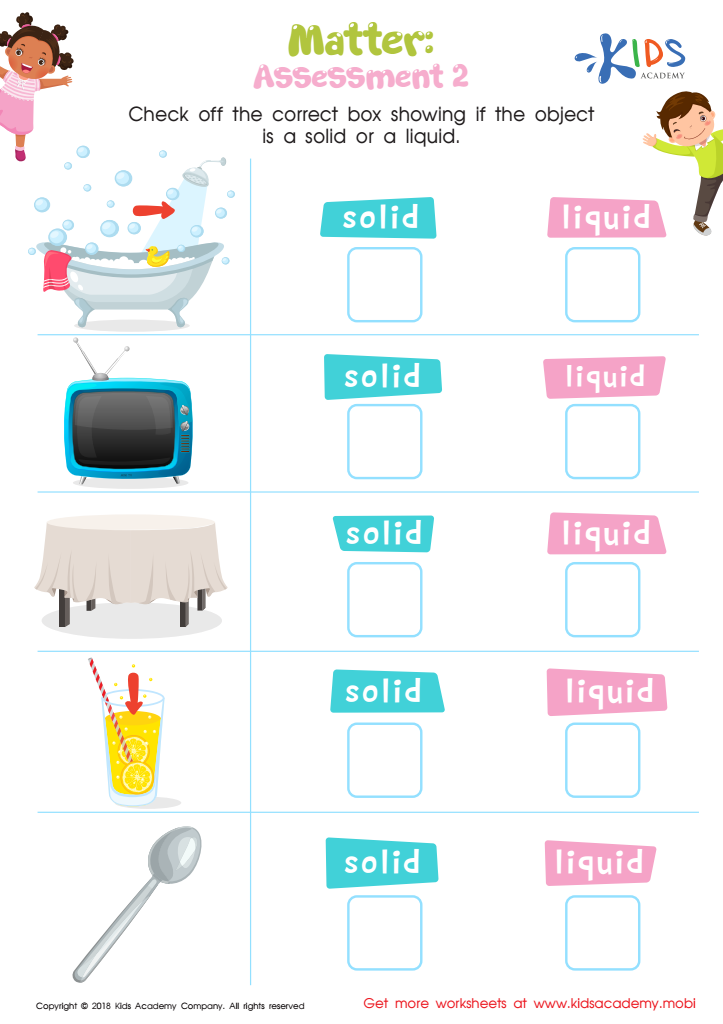Normal Science worksheets activities for Ages 6-7
10 filtered results
-
From - To


Animals and Plants: Assessment 2 Worksheet


Animals and Plants: Assessment 1 Worksheet


Ecosystems: Assessment 2 Worksheet


Ecosystems: Assessment 1 Worksheet


Space: Assessment 2 Worksheet


Space: Assessment 1 Worksheet


Light and Sound: Assessment 2 Worksheet


Matter: Assessment 2 Worksheet


Matter: Assessment 1 Worksheet


Force and Interactions: Assessment 1 Worksheet
Normal Science worksheets activities play a crucial role in the educational development of students, offering a structured and interactive way to explore complex scientific concepts. These activities are designed to encourage curiosity, enhance understanding, and foster a love for science, making them an invaluable tool in the learning process.
One of the primary benefits of Normal Science worksheets activities is their ability to provide hands-on experience with scientific principles. By engaging directly with the material, students can observe the practical implications of theoretical knowledge, helping to cement their understanding and make learning more tangible. This hands-on approach is particularly effective in catering to different learning styles, ensuring that all students have the opportunity to grasp the subject matter fully.
Additionally, Normal Science worksheets activities facilitate critical thinking and problem-solving skills. As students work through the exercises, they are often required to apply logic and reasoning to arrive at conclusions, thereby enhancing their analytical capabilities. This not only aids in their science education but also prepares them for real-world challenges, where such skills are invaluable.
Moreover, these activities can be incredibly versatile, easily adapted to suit various topics and difficulty levels. Whether it's elementary biology or advanced physics, Normal Science worksheets activities can be tailored to meet the needs of all students, providing a personalized learning experience that can accommodate individual strengths and weaknesses.
Furthermore, Normal Science worksheets activities encourage independent learning. By working through the exercises at their own pace, students learn to take initiative in their education, developing self-discipline and a sense of responsibility for their learning. This independence is crucial for lifelong learning, empowering students to pursue knowledge beyond the classroom.
In conclusion, Normal Science worksheets activities are an essential component of science education. Through hands-on experience, critical thinking, versatility, and fostering independence, these activities make learning science enjoyable and effective, laying a solid foundation for students' academic and personal growth.

 Assign to My Students
Assign to My Students
















